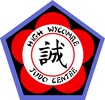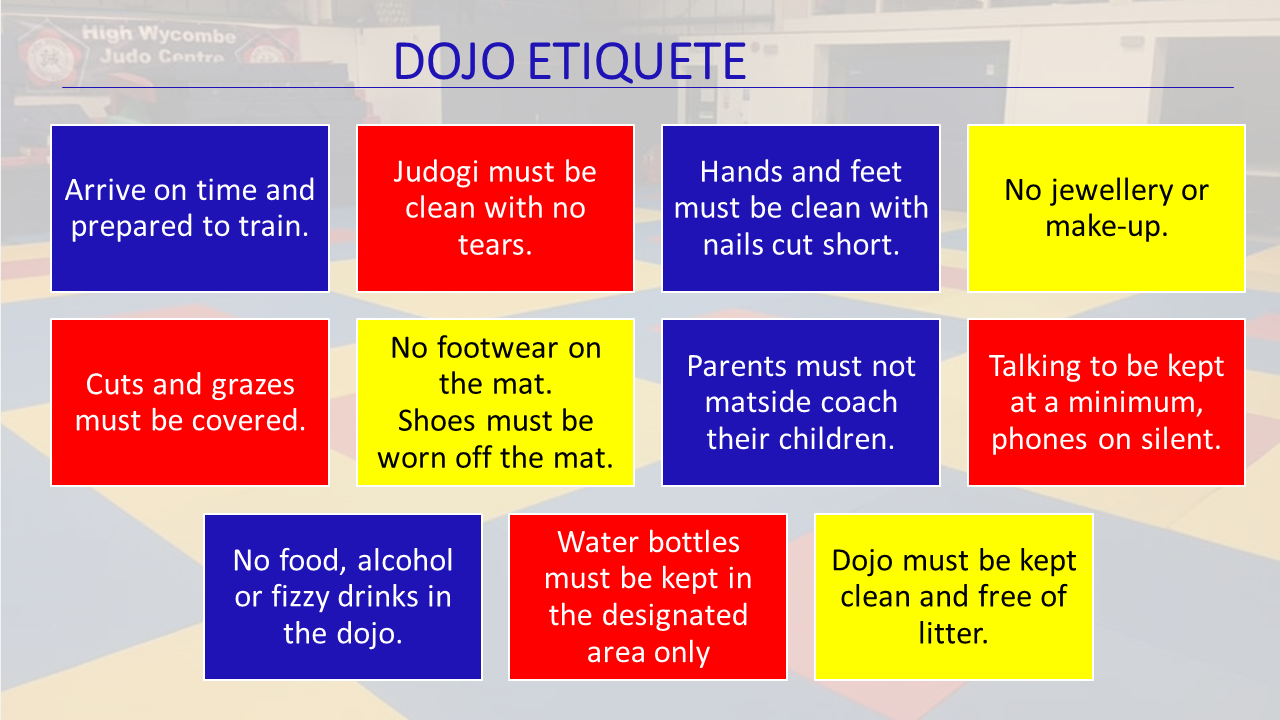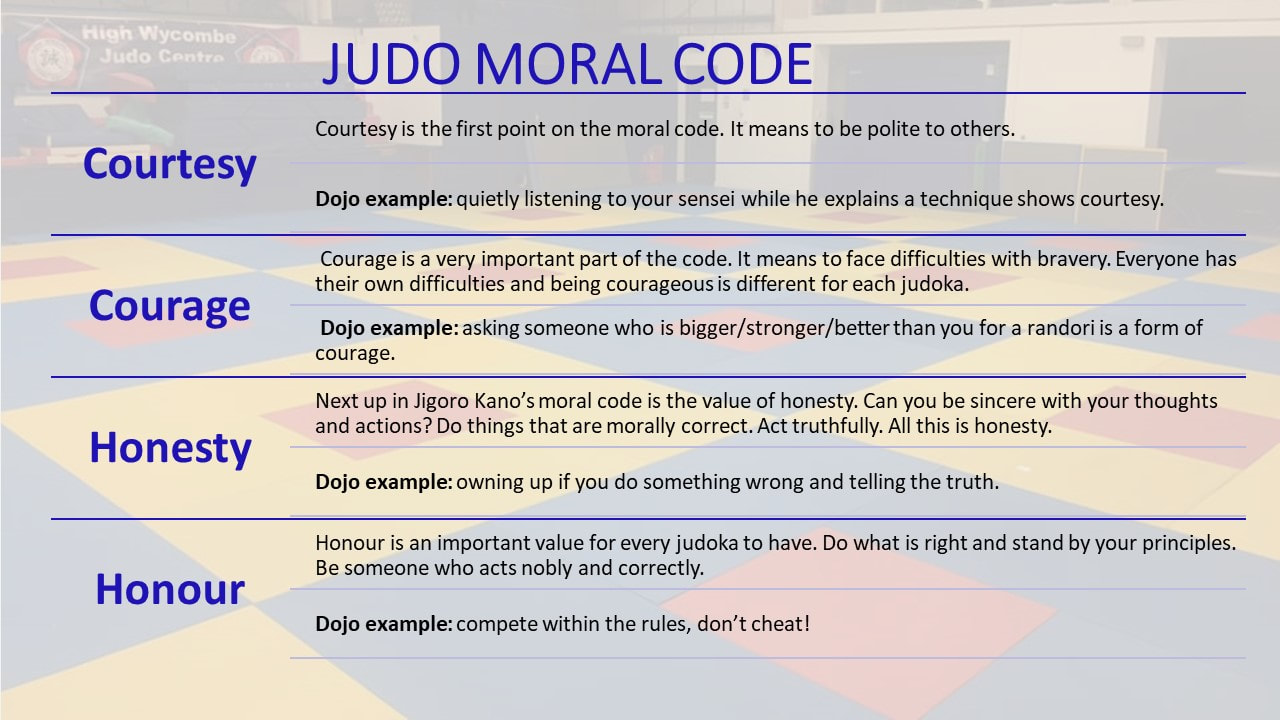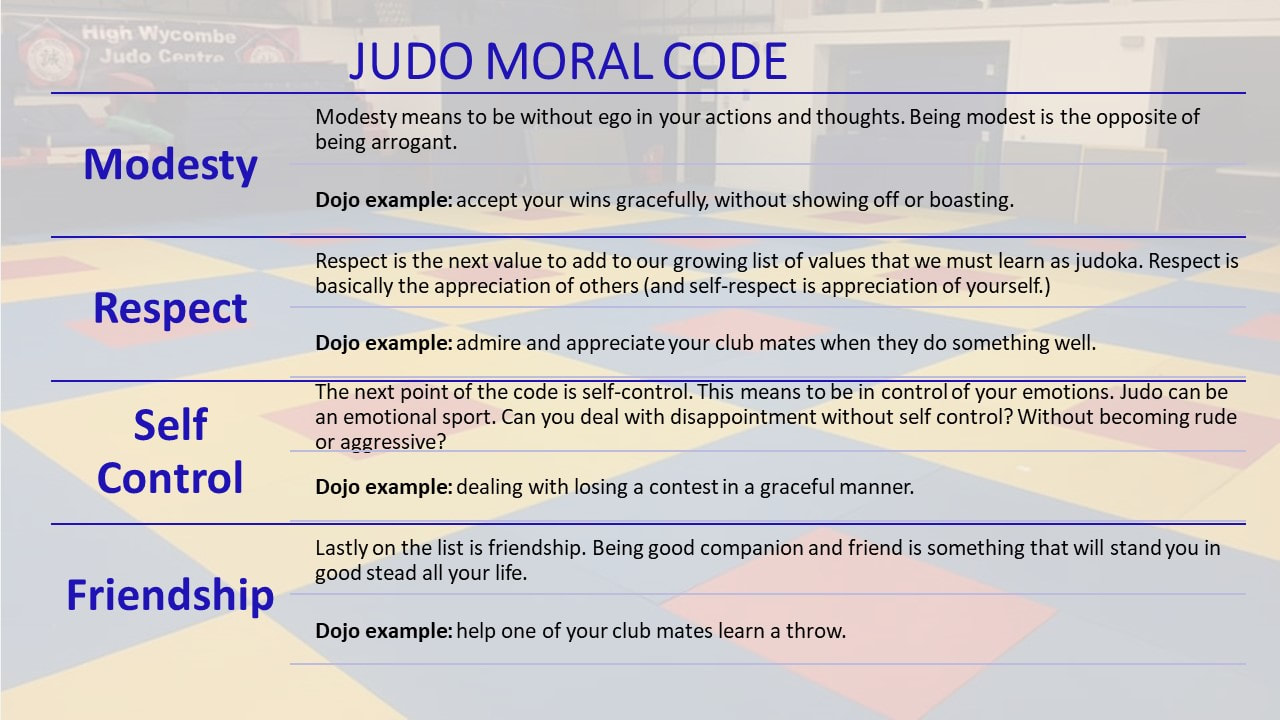THE DOJO ETIQUETE AND THE JUDO MORAL CODE
Judo is a Japanese sport and Kodokan judo was first established in Japan in 1882 by Professor Jigorō Kanō. The term judo translates to ‘the gentle way’, ‘ju’ meaning ‘gentle’ and ‘do’ meaning ‘the way’. Kodokan is translated ‘a school for studying the way’, ‘the way’ being the concept of life itself.
(Source: IJF -https://www.ijf.org/history/judo-culture)
Nowadays, the practice of martial arts and judo in particular has become democratised, to the delight of millions of judoka across the planet. The practitioners are often numerous, the atmosphere studious and joyful, the teaching warm. Nevertheless, it remains important to respect certain principles which are an integral part of the DNA of our sport, because otherwise what would remain of the teaching after a few years, if the moral code is not respected?
The dojo is a place of symbols where principles are applied that promote living together. It is a place of freedom of expression with respect for others. It is for this reason, among other things, that a dojo, wherever it is located, is a place of non-discrimination, open to anyone who wishes to discover the way. This path is a path of life that we undertake when we put on our first judogi and which finds extensions in everyday life, in professional and family life.
It is for all these reasons that when you walk through the door of a dojo, it is necessary to follow rules that are both common sense and the tradition of martial arts. Any entry into and exit from a dojo thus begins with a bow and a moment of silence. Later, we will always make sure to greet our partner. It is important to be on time so as not to disturb those whom have already commenced a session. In case of delay, we may have to wait for teacher's permission to step on the tatami.
Judo is practiced in judogi, a judogi it is up to us to maintain and with a belt that corresponds to our level.
Hygiene has always been a mark of self-respect and a mark of respect for others. It is also essential in the place of practice of judo. This is why, in this period of pandemic, judo, although it is a contact sport, nonetheless remains a safe sport. The gestures of protection and hygiene have always been key words in judo.
The dojo must be a safe place, allowing everyone to follow their path while respecting that of others. We study, practise and learn by doing, so that in the end, everyone can get on with their lives, armed to face all the vagaries of life.
The dojo is a central element of our judoka lives!
Nowadays, the practice of martial arts and judo in particular has become democratised, to the delight of millions of judoka across the planet. The practitioners are often numerous, the atmosphere studious and joyful, the teaching warm. Nevertheless, it remains important to respect certain principles which are an integral part of the DNA of our sport, because otherwise what would remain of the teaching after a few years, if the moral code is not respected?
The dojo is a place of symbols where principles are applied that promote living together. It is a place of freedom of expression with respect for others. It is for this reason, among other things, that a dojo, wherever it is located, is a place of non-discrimination, open to anyone who wishes to discover the way. This path is a path of life that we undertake when we put on our first judogi and which finds extensions in everyday life, in professional and family life.
It is for all these reasons that when you walk through the door of a dojo, it is necessary to follow rules that are both common sense and the tradition of martial arts. Any entry into and exit from a dojo thus begins with a bow and a moment of silence. Later, we will always make sure to greet our partner. It is important to be on time so as not to disturb those whom have already commenced a session. In case of delay, we may have to wait for teacher's permission to step on the tatami.
Judo is practiced in judogi, a judogi it is up to us to maintain and with a belt that corresponds to our level.
Hygiene has always been a mark of self-respect and a mark of respect for others. It is also essential in the place of practice of judo. This is why, in this period of pandemic, judo, although it is a contact sport, nonetheless remains a safe sport. The gestures of protection and hygiene have always been key words in judo.
The dojo must be a safe place, allowing everyone to follow their path while respecting that of others. We study, practise and learn by doing, so that in the end, everyone can get on with their lives, armed to face all the vagaries of life.
The dojo is a central element of our judoka lives!



